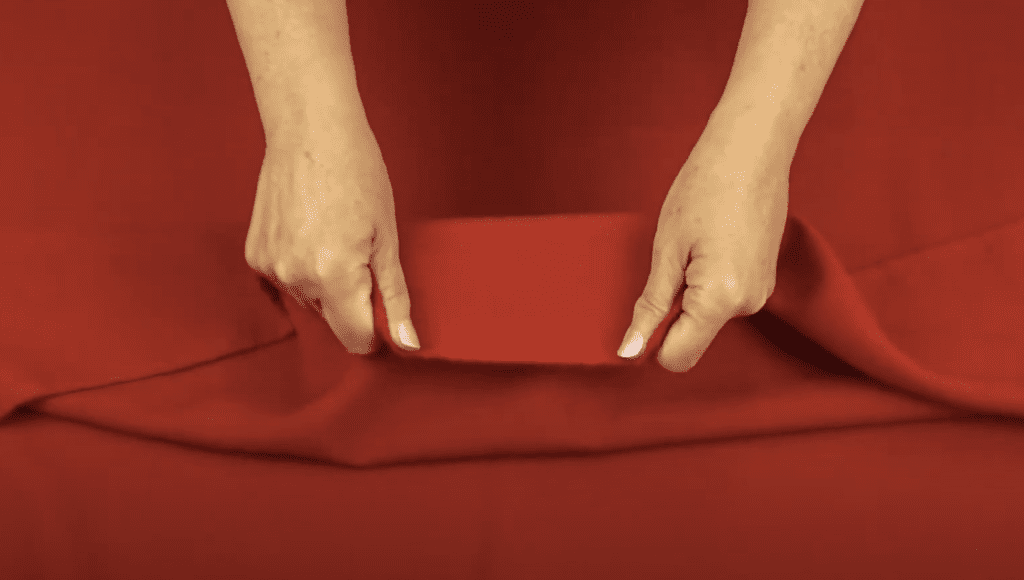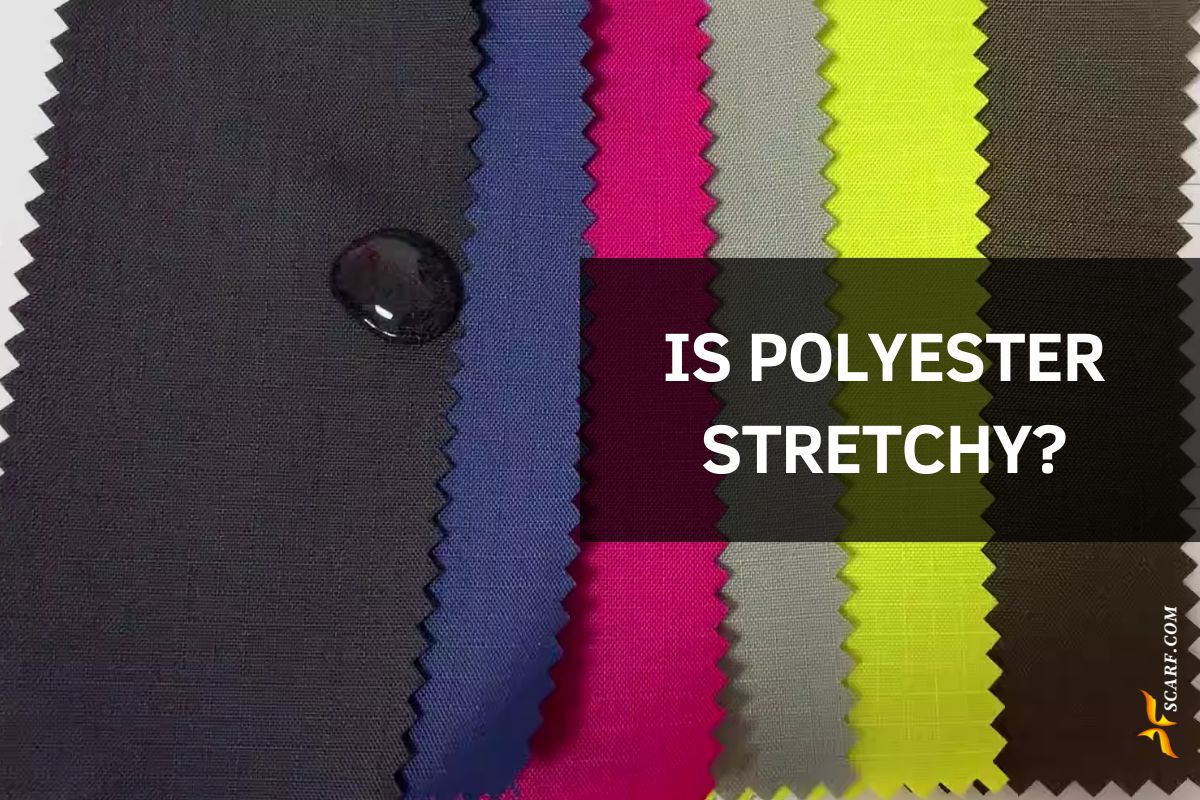Polyester fabric‘s popularity in the market can be attributed to its unique properties, which we’ll explore in this article. But the questions that often arise are: Is polyester stretchy & waterproof? And how does it hold up when polyester vs cotton? Let’s unravel the mysteries of polyester.
What is polyester fabric?
Polyester fabric is a synthetic fabric that has become a staple in the textile industry since its invention in the 20th century. Initially created to mimic the properties of naturally occurring fibers, polyester has carved out its own identity due to its durability and ease of care. Being a polymer—more specifically, a category of polymers called polyethylene terephthalate (PET)—it is made through a chemical reaction involving coal, petroleum, air, and water.
This man-made fiber is known for its resilience and resistance to wrinkles and shrinking, which makes it a favorite among clothing manufacturers and consumers alike. It’s not uncommon to find polyester blended with other fibers to enhance its characteristics, creating fabrics that benefit from the strengths of each material.
Polyester’s versatility extends beyond clothing; it is used in a variety of applications, from insulation in jackets to upholstery and even as a filling in comforters and pillows. Its widespread use can be attributed to its adaptability and the ease with which it can be woven into different weights and textures.
Properties of polyester fabric
Delving deeper into the properties of polyester fabric, it’s clear to see why it’s a popular choice. Polyester fibers are strong and durable, resistant to many chemicals, and can withstand a good amount of wear and tear. Additionally, they are quick drying, which makes them a go-to material for outdoor clothing and gear.
Another significant property of polyester is its ability to retain its shape. Unlike some natural fibers that might stretch or warp over time, polyester keeps its form, maintaining the integrity of the garment or item it’s used in. This attribute also lends to polyester’s low-maintenance profile, as it does not require ironing and maintains a crisp appearance over time.
The thermal properties of polyester deserve a mention too. It is an insulating material that can trap body heat, which is why it’s often used in cold-weather gear. However, this quality also means that traditional polyester does not breathe as well as natural fibers like cotton, which can lead to discomfort in hot weather or during intense physical activity.


Is polyester stretchy?
When it comes to the primary keyword of our discussion, “does polyester stretchy,” the answer is a bit nuanced. Polyester fibers themselves do not have natural stretch. However, when woven into fabric, the material can have some give, depending on the knitting or weaving technique used. For instance, when polyester is processed into a textured yarn and then knit into a fabric, it can exhibit stretchiness due to the knit pattern.
To create a truly stretchy polyester fabric, it’s often blended with elastic fibers like spandex or elastane. These blends are particularly prevalent in activewear and form-fitting clothing. The combination of polyester’s durability with the elasticity of spandex results in a fabric that can stretch comfortably and return to its original shape without sagging.
Therefore, while pure polyester has limited stretchability, the modern textile industry has engineered ways to enhance this property, making it suitable for a wide range of applications where flexibility is desired.
Is polyester waterproof?
Another common question is, “Is polyester waterproof?” By its nature, polyester is hydrophobic, meaning it repels water rather than absorbing it. This makes the fabric dry quickly when wet and less susceptible to staining, as spills can be wiped away relatively easily.
However, it’s important to differentiate between water-resistant and waterproof. Polyester fabric is inherently water-resistant to some degree but not fully waterproof. For a polyester garment to be considered waterproof, it must be treated with a coating or laminate that prevents water from penetrating the fabric, such as those used in rainwear and outdoor gear.
This treatment can come in various forms, from a simple water-repellent finish to more complex layers like a polyurethane laminate. Such treatments enhance the functionality of polyester, allowing it to serve effectively in environments where moisture protection is crucial.


Does Polyester Shrink?
Shrinkage is a key concern for many when it comes to laundry and fabric care, leading us to the question, “Does polyester shrink?” One of the advantages of polyester is its resistance to shrinkage. Unlike natural fibers that can shrink when exposed to heat, polyester maintains its size and shape quite well.
Tips: Does Polyester Shrink? Expert Tips For You
This resistance to shrinking is due to the nature of the fibers, which are thermoplastic. When polyester is created, it’s heated to a high temperature to set the fibers’ shape, and once formed, they are not easily altered. This means that under normal washing and drying conditions, polyester does not shrink.
However, it’s worth noting that exposing polyester to extremely high temperatures can cause it to melt or deform, so caution should be exercised when applying heat.
Polyester vs cotton
In the textile industry, the debate of polyester vs cotton is ongoing. Both fabrics have their own set of advantages and disadvantages that make them suitable for different applications. Let’s delve into a comparison of the two.
Cotton is a natural fiber that comes from the cotton plant. It’s praised for its softness, comfort, and breathability, making it an ideal choice for clothing, especially in warmer climates. Cotton is also highly absorbent, which means it can wick away moisture from the body, but this also means it takes longer to dry.
On the other hand, polyester, as we’ve discussed, is synthetic and offers durability, resistance to shrinking and wrinkling, and quick-drying properties. It’s less breathable than cotton and can sometimes lead to discomfort in hot conditions.
When comparing polyester vs cotton, it comes down to the intended use and personal preference. For outdoor activities and situations where durability and moisture management are priorities, polyester may be the better choice. For everyday comfort and natural feel, cotton often comes out on top.
Does polyester shrink in the dryer?
Concerning the secondary keyword, “does polyester shrink in the dryer,” the answer is generally no, but with a caveat. While polyester is resistant to shrinkage, it is not entirely immune to the effects of heat. When exposed to high temperatures, such as those in a dryer, there is a possibility of slight shrinkage or melting if the dryer is set to a very high heat setting.
To minimize any risk, it’s recommended to dry polyester on a low heat setting or allow it to air dry. This will help ensure that the fabric maintains its shape and integrity. It’s also a good practice to refer to the garment’s care label for specific drying instructions to prevent any mishaps.
Common uses of polyester fabric
The common uses of polyester fabric are vast and varied, reflecting its adaptability and resilience. In the fashion industry, polyester is used in everything from everyday clothing to specialized performance wear. It’s favored for its color retention, which means garments stay vibrant wash after wash.
In addition to clothing, polyester has a significant presence in the home décor sector. It’s used in upholstery fabrics, curtains, and bedding due to its durability and aesthetic appeal. Polyester’s resistance to stains and ease of maintenance make it a practical choice for households.
Moreover, polyester has applications beyond the consumer market. It’s used in industrial products like conveyor belts, safety belts, and coated fabrics for its strength and resistance to abrasion.


How to wash polyester?
When it comes to how to wash polyester, the process is fairly straightforward, but there are a few guidelines to ensure the longevity of your polyester items. Typically, polyester can be machine washed in warm water with a mild detergent. It’s advisable to turn garments inside out to protect the outer surface, especially if they have a decorative finish.
Avoid using bleach on polyester, as it can break down the fibers and cause damage. If your polyester garments are heavily soiled, pre-treating with a stain remover before washing can be effective.
After washing, polyester can be tumble dried on a low heat setting or hung to dry. If ironing is necessary, use a low temperature and avoid direct contact with the fabric by using a pressing cloth or ironing garment inside out.
Tips: Maintenance and Washing of Different Scarf Fabrics
Sustainable alternatives to polyester
As the world becomes more environmentally conscious, the search for sustainable alternatives to polyester has intensified. There are several eco-friendly fabrics emerging that offer similar benefits to polyester without the environmental impact of petroleum-based fibers.
Materials like recycled polyester, made from post-consumer plastic bottles, provide a more sustainable option while maintaining the positive attributes of traditional polyester. Other alternatives include plant-based fibers like Tencel and modal, which are derived from renewable sources and are biodegradable.
Innovations in fabric technology are also leading to the development of new materials that aim to reduce the ecological footprint of textiles while still providing performance and durability.
Conclusion
Polyester fabric offers a combination of durability, versatility, and ease of care that makes it a popular choice in various industries. While it may not be naturally stretchy or entirely waterproof, advances in textile manufacturing have allowed for these properties to be enhanced, making polyester suitable for a wide array of applications.
When considering the debate of polyester vs cotton or questioning whether polyester shrinks in the dryer, it’s clear that each material has its own place, and the choice depends on the specific needs and preferences of the user.
As we move towards a more sustainable future, it’s encouraging to see the development of alternatives to traditional polyester that reduce environmental impact without sacrificing functionality.
Textiles are an integral part of our daily lives, and understanding the properties and care of fabrics like polyester enables us to make informed decisions about the products we use and wear.
Whether you’re selecting clothing, furnishing a home, or considering the fabric of your choice to purchase, any questions about materials like polyester you can contact us, and we – a professional fabric expert – will provide you with the most professional services.



